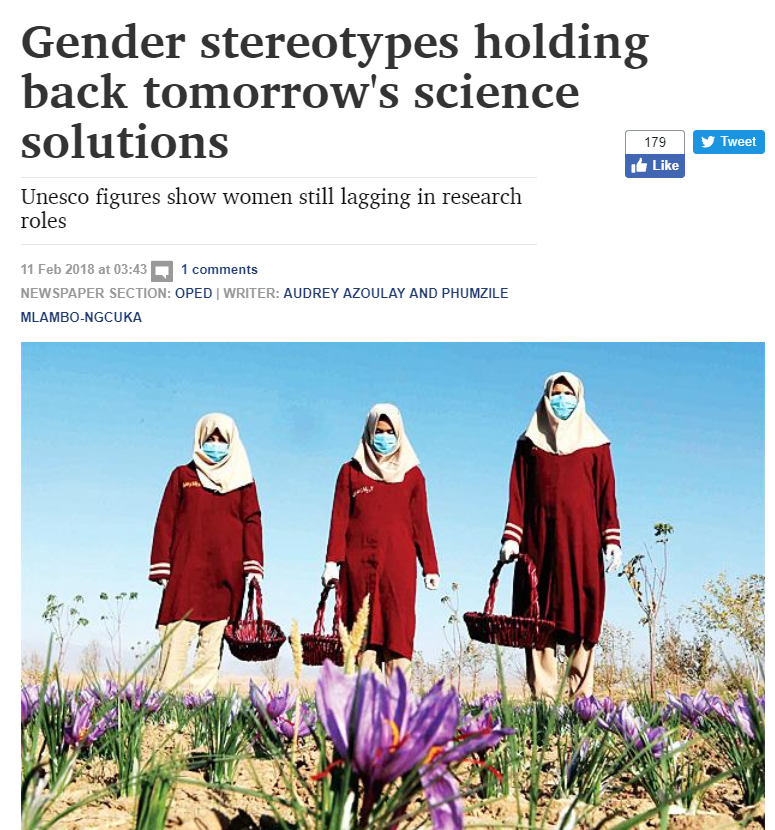Publish Date: Feb 23, 2018
Our future will be marked by scientific and technological progress, just like our past. That future progress will be the greatest when it draws on the full talent, creativity and ideas of women and girls in science. Most countries, industrialised or not, are far from achieving gender parity in Science, Technology, Engineering and Mathematics subjects (Stem) at every level of the education system. That deficit feeds the employment gap. According to estimates by the Unesco Institute of Statistics, women currently represent less than 30% of the research and development workforce worldwide.
The rapidly growing science and technology sectors are vital to national economies. Tackling some of the greatest challenges of the 2030 Agenda for Sustainable Development — from improving health to combating climate change — will rely on harnessing all talent. That means we need to achieve a significant increase in the number of women entering and remaining in Stem careers.
One of the main tools for tackling gender inequality in the sciences is dismantling the barriers to girls and women, at home, in the classroom and in the workplace. This requires a change in attitudes and the challenging of stereotypes. We need to tackle biased perceptions among teachers, employers, peers and parents of the suitability of girls and young women to learn science — or learn at all — to pursue scientific careers or to lead and manage in academic spheres.
It is difficult for girls to believe in themselves as scientists, explorers, innovators, engineers and inventors when the images they see on social media, in textbooks and in advertising reflect narrow and limiting gender roles. This is why UN Women is leading the “Un-stereotype Alliance” initiative, which encourages advertisers, tech companies and influencers to banish old-fashioned, stereotypical portrayals of gender in advertising that could diminish or limit the role of women in society. These inaccurate depictions can hinder women’s careers, including as scientific innovators.
The 2017 report of the UN Secretary-General’s High-Level Panel on Women’s Economic Empowerment explored the impact of these adverse social norms and highlighted the need for dialogue with children and adolescents, so that both girls and boys see themselves as equally capable from early childhood. It also looked at ways of promoting positive role models as a key driver of change to increase women’s economic participation worldwide. Strong women mentors can show women and girls the path to leadership in academia, research and business throughout their careers. This is why Unesco, together with the L’Oréal Foundation, has been encouraging women scientists for two decades through the For Women in Science Awards designed to celebrate women’s achievements. Our recently launched Manifesto “For Women in Science” is a call to nurture women’s talent, from supporting girls’ education in Stem subjects to guaranteeing equal opportunities for women to fully participate and lead in the broad spectrum of high-level scientific bodies.
UN Women and Unesco are committed to continue working through the UN system, and with all our public, private and civil society partners to ensure that girls and women are represented more equitably, and granted the full opportunities they need to thrive in science-related disciplines and make the cuttingedge discoveries of the future.


